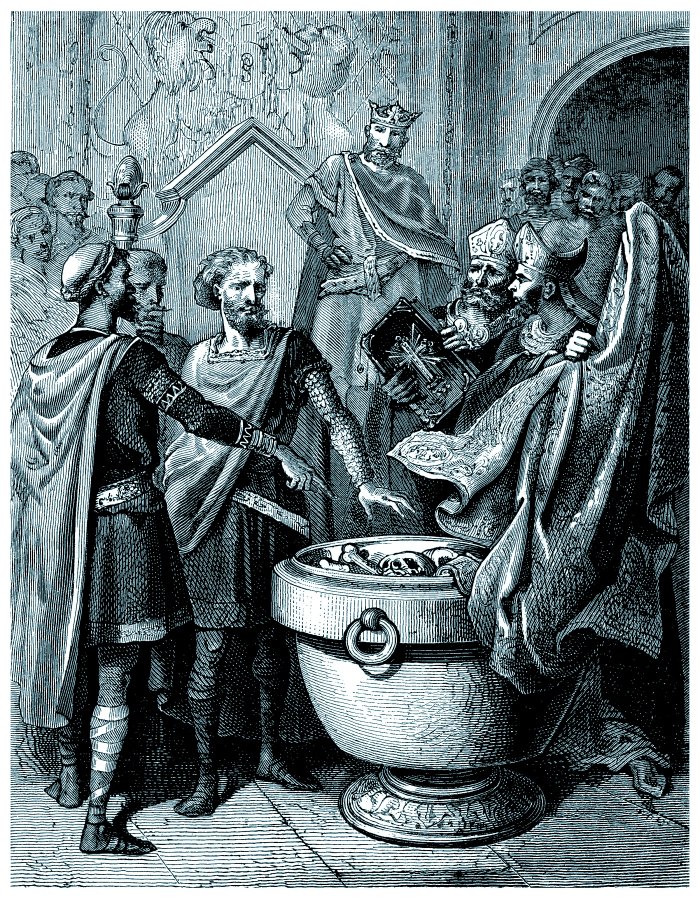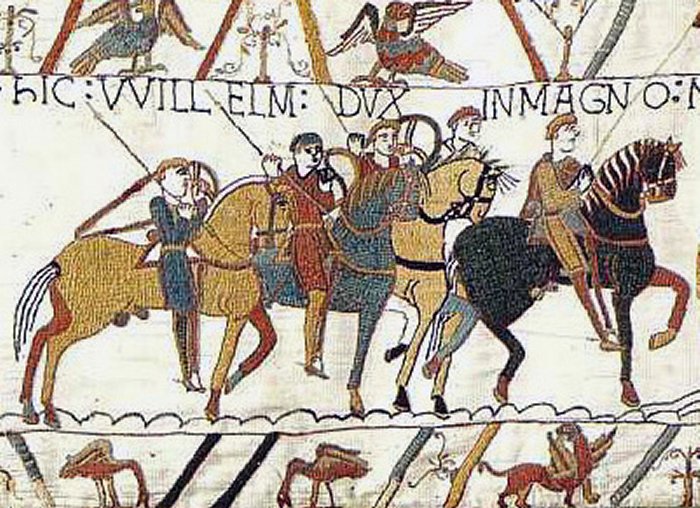William The Conqueror: Ruthless And Powerful Ruler Who Changed Britain Forever
A. Sutherland - AncientPages.com - Wilhelm I Conqueror, also known as "William the Bastard" (ca. 1028 -1087), was King of England and Duke of Normandy.
William the Conqueror & Harold II swearing - 11th century. Image: Adobe Stock - Erica Guilane-Nachez
William was the son of Herleva and Robert I, the Duke of Normandy, France, then known as “Francia”). William was frequently called a bastard, especially by his opponents. The reason was that his mother actually never married his father, Robert, most probably because Herleva was a simple Anglo-Saxon woman and not of noble birth.
Although he was the illegitimate son of the Duke of Normandy Robert the Magnificent (also called "Robert the Devil"), after his father's death in 1035, William was named his successor at only eight years of age. Under the name of William II (in French: Guillaume II), the boy became the new duke of Normandy during a challenging time.
William The Conqueror's Struggle To Gain Power
Corruption, violence, and strong opposition from powerful Norman barons, his bitter rivals, plagued his early reign.
Three of his guardians and his tutor died violent deaths during his childhood. William witnessed the end of his steward, Osbern, whose throat was cut by a Norman rebel while sleeping in William's bed-chamber.
William managed to survive the early years of chaos, both in his own life and in Normandy, with the help of King Henry I of France. From 1046 onwards, he successfully dealt with rebels, troublesome Norman barons, and all those who questioned the right of a bastard to succeed. Then with the support of Henry I, he began to expand his territory.
A late-1800s engraving shows William the Conqueror after the Battle of Hastings. Source
In 1051 the king of England, Edward the Confessor, appointed William as his successor. Edward died in 1066, leaving no direct heirs, and the country was threatened with invasion by two rival claimants, Harald Hardrada, King of Norway, and William, Duke of Normandy.
The English nobles elected to the throne their candidate - Harold Godwin (also called Harold Godwineson or Godwinson), the most powerful of the English lords.
William gathered his army and landed on the island. He was angry; Harold claimed the throne of England for himself, even though he made an oath to William to support his claim. On October 14, 1066, the two armies met in the famous Battle of Hastings.
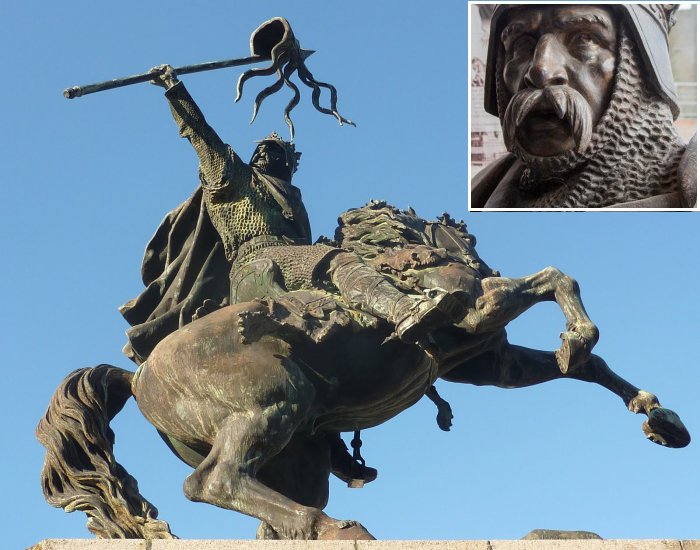 William, I was victorious and he took London without further resistance. Image credit: Man vyi - Public Domain
William, I was victorious and he took London without further resistance. Image credit: Man vyi - Public Domain
According to modern scholars' estimation, each of the sides had between 5,000 and 7,000 men.
William The Conqueror Becomes King Of England
King Harold and his two brothers were killed in the battle. William, I was victorious; he took London without further resistance. He was crowned king of England on Christmas Day, 1066, and ruled until he died in 1087.
However, the conquest of England had not yet ended. Several revolts marked the next five years, and William used them as an excuse to confiscate English land and declare it his property. Subsequently, he distributed the land to his Norman knights, who imposed their unique feudal system.
The following important issue was a nationwide inventory of property landlords and property of the people. William had to determine the taxes he had to pay all his subjects.
The Bayeux Tapestry, chronicling the English/Norman battle in 1066 which led to the Norman Conquest. Image credit: alipaiman - Public Domain
Once an entire picture of England was collated in the Domesday Book, William could send his tax gatherers out. Eventually, the Normans replaced the whole of the Anglo-Saxon aristocracy.
His famous "The Domesday Book" was a detailed register of the population and property of England (now an invaluable source of historical information and still in the Public Record Office in London).
William died on September 9, 1087, in Rouen, France. He had four sons and five daughters; every monarch of England since has been his direct descendant.
He never spoke English and was illiterate, but his influence on England and the English language was enormous.
"William the Conqueror was a fierce warrior that may cause gentler people to shudder. However, our world needs such people. Without them, we might destroy ourselves and our civilizations based on disorganization and a lack of cohesive leadership..." 1
Written by – A. Sutherland AncientPages.com Staff Writer
Updated on February 25, 2023
Copyright © AncientPages.com All rights reserved. This material may not be published, broadcast, rewritten or redistributed in whole or part without the express written permission of AncientPages.com
Expand for referencesReferences:
Ed Sharrow - The Last Battle: The Life of William the Conqueror
Edward Freeman - William the Conqueror
Abbott Jacob, William the Conqueror
- in60Learning, William the Conqueror: The King Who Changed the Course of British History
More From Ancient Pages
-
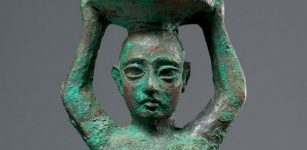 Divine Shulgi Of Ur: Influential, Long-Ruling King, Conqueror And Native Akkadian Speaker In Five Languages
Civilizations | Mar 22, 2019
Divine Shulgi Of Ur: Influential, Long-Ruling King, Conqueror And Native Akkadian Speaker In Five Languages
Civilizations | Mar 22, 2019 -
 Rare Medieval Chess Piece And Game Collection Unearthed At A Forgotten Castle
Archaeology | Jun 7, 2024
Rare Medieval Chess Piece And Game Collection Unearthed At A Forgotten Castle
Archaeology | Jun 7, 2024 -
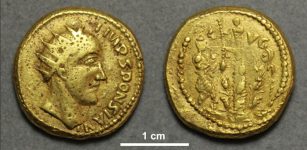 Ancient Roman Coins Thought To Be Fakes Are Authentic – Experts Say
Archaeology | Nov 23, 2022
Ancient Roman Coins Thought To Be Fakes Are Authentic – Experts Say
Archaeology | Nov 23, 2022 -
 Secret Group Searching For Ancient Giants’ Skeletons In NZ Worries Archaeologists
Archaeology | Mar 19, 2020
Secret Group Searching For Ancient Giants’ Skeletons In NZ Worries Archaeologists
Archaeology | Mar 19, 2020 -
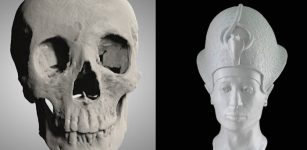 King Tut’s Face Reconstructed By Bioarchaeologist
Archaeology | Nov 26, 2022
King Tut’s Face Reconstructed By Bioarchaeologist
Archaeology | Nov 26, 2022 -
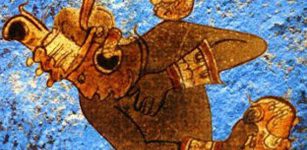 Mystery Of The Maya Blue Pigment And Its Unusual Chemical Composition
Ancient History Facts | Mar 23, 2016
Mystery Of The Maya Blue Pigment And Its Unusual Chemical Composition
Ancient History Facts | Mar 23, 2016 -
 Who Was King Menes? Mystery Of This Legendary Ruler May Go Back 20,000 Years
Civilizations | May 1, 2017
Who Was King Menes? Mystery Of This Legendary Ruler May Go Back 20,000 Years
Civilizations | May 1, 2017 -
 Dangerous Anomaly Inside Mysterious European Mountain Remains Unexplained – Unusual Ancient Connections – Part 1
Featured Stories | Mar 13, 2021
Dangerous Anomaly Inside Mysterious European Mountain Remains Unexplained – Unusual Ancient Connections – Part 1
Featured Stories | Mar 13, 2021 -
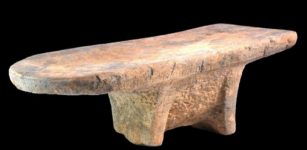 Evidence Of A 2,000-Year-Old Curry, The Oldest Ever Found In Southeast Asia
Featured Stories | Jul 25, 2023
Evidence Of A 2,000-Year-Old Curry, The Oldest Ever Found In Southeast Asia
Featured Stories | Jul 25, 2023 -
 Gorgo – Queen Of Sparta And Wife Of King Leonidas Broke A Secret Code And Stopped An Invasion
Featured Stories | Aug 5, 2019
Gorgo – Queen Of Sparta And Wife Of King Leonidas Broke A Secret Code And Stopped An Invasion
Featured Stories | Aug 5, 2019 -
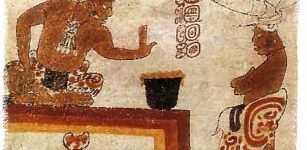 Chocolate Was Invented In Mesoamerica 1900 B.C.
Ancient History Facts | Jan 17, 2016
Chocolate Was Invented In Mesoamerica 1900 B.C.
Ancient History Facts | Jan 17, 2016 -
 On This Day In History: Mathematician And Astronomer Simon Marius Independently Rediscovered Andromeda Galaxy – On Dec 15, 1612
News | Dec 15, 2016
On This Day In History: Mathematician And Astronomer Simon Marius Independently Rediscovered Andromeda Galaxy – On Dec 15, 1612
News | Dec 15, 2016 -
 Discovery Of Half-Million-Year-Old Wooden Structure Shows We’re Wrong To Underestimate Our Ancient Relatives
Featured Stories | Oct 10, 2023
Discovery Of Half-Million-Year-Old Wooden Structure Shows We’re Wrong To Underestimate Our Ancient Relatives
Featured Stories | Oct 10, 2023 -
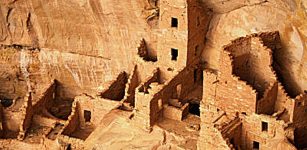 The ‘Anasazi’ Mystery: Sophisticated Civilization That Disappeared
Civilizations | Sep 20, 2015
The ‘Anasazi’ Mystery: Sophisticated Civilization That Disappeared
Civilizations | Sep 20, 2015 -
 Underground Civilizations – True Rulers Of Earth – Part 1
Featured Stories | May 7, 2019
Underground Civilizations – True Rulers Of Earth – Part 1
Featured Stories | May 7, 2019 -
 Evidence People Lived In Australian Desert 50,000 Years Earlier Than Previously Thought
Archaeology | Sep 22, 2018
Evidence People Lived In Australian Desert 50,000 Years Earlier Than Previously Thought
Archaeology | Sep 22, 2018 -
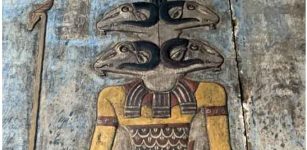 Reliefs And Engravings Of Celestial Bodies And A Zodiac On Walls And Ceilings Of Luxor’s Esna Temple
Archaeology | Oct 5, 2023
Reliefs And Engravings Of Celestial Bodies And A Zodiac On Walls And Ceilings Of Luxor’s Esna Temple
Archaeology | Oct 5, 2023 -
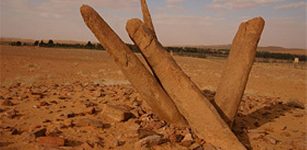 Stones Of Rajajil – Sophisticated Road Markers Or An Ancient Astronomical Observatory?
Civilizations | May 21, 2017
Stones Of Rajajil – Sophisticated Road Markers Or An Ancient Astronomical Observatory?
Civilizations | May 21, 2017 -
 Mystery Of The 3,500-Year-Old ‘Screaming Woman’ Mummy Solved
Archaeology | Aug 9, 2024
Mystery Of The 3,500-Year-Old ‘Screaming Woman’ Mummy Solved
Archaeology | Aug 9, 2024 -
 Why Did King Solomon Hide Advanced Technology In A Secret Place? – The Great Deception – Part 2
Featured Stories | Apr 3, 2021
Why Did King Solomon Hide Advanced Technology In A Secret Place? – The Great Deception – Part 2
Featured Stories | Apr 3, 2021

